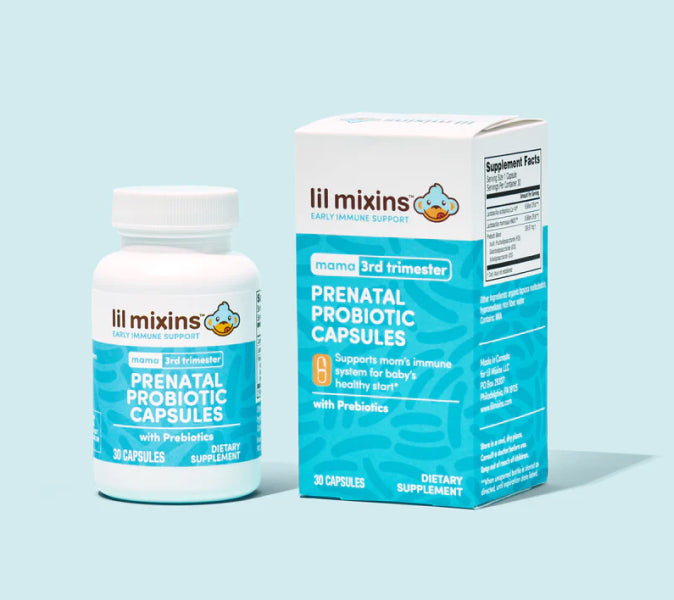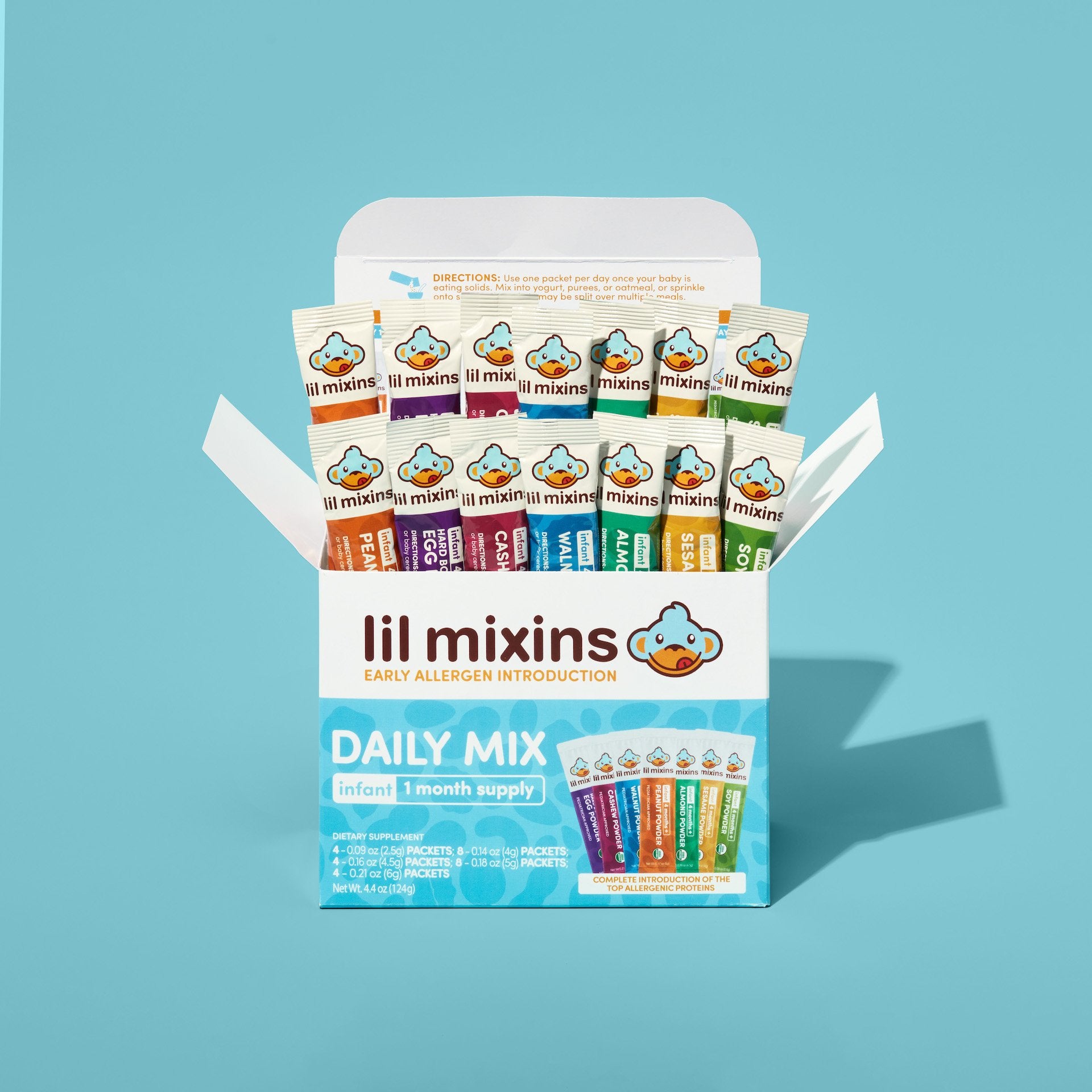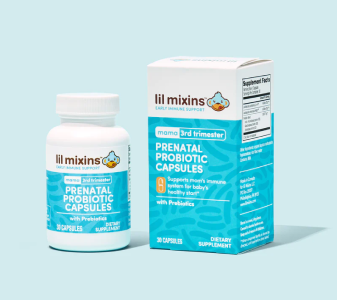Eczema Flare vs Allergic Reaction
What’s the difference between an eczema flare and an allergic reaction? Telling them apart starts with considering these few things.
- Speed - an allergic reaction to a food usually shows up within minutes (but up to 4 hours after) eating a food, and resolves within a few hours with Zyrtec. Eczema appears randomly, persists, and doesn’t seem related to what was just eaten. This is the biggest clue.
- Location - eczema is more often found on the back of knees, inside of elbows, and maybe on the cheeks. Hives from an allergic reaction are more likely to be all over.
- Appearance - hives are usually smaller, raised lumps that can be warm and squishy to the touch. Eczema comes in bigger patches and feels dry and rough.
- Other Symptoms - Allergic reactions are often combined with vomiting / diarrhea or more severe symptoms. Eczema flares are the only symptom. A baby having an allergic reaction itches all over. Eczema usually itches only where you see the red skin.
- Reproducibility - Allergic reactions happen every single time the food is eaten, and go away when the food is avoided. Eczema comes and goes, and doesn’t happen reliably after a food is eaten.
- Treatment - If skin symptoms are combined with vomiting / diarrhea, coughing, etc, follow the allergic reaction treatment plan, and seek medical care immediately. An eczema flare (without any other symptoms) may need a doctor’s visit, but it is not urgent. Eczema flares may be treated with skin creams, apple cider vinegar baths, and removing triggers.
This can be so confusing because food allergies and eczema are related. Food allergies can cause eczema flares. For example, a cow’s milk allergy in a small baby can cause eczema. These flares are healed by removing cow’s milk from a baby’s diet.
Eczema flares should not be ignored if you are nervous about food allergies. Eczema is often a precursor to food allergies and eczema can even cause food allergies.

Shop Prenatal Probiotic Capsules One-Month Supply
Speed of Symptoms
Allergic responses tend to appear quickly, usually within minutes. Allergic reactions typically start around a baby’s mouth where food touched their skin. The symptoms then quickly spread. The symptoms also respond quickly to antihistamines (Zyrtec) or epinephrine.
Baby eczema, on the other hand, is chronic. Eczema flares are much slower to appear, often delayed by 4 or more hours after eating a food. Flares can spread, but do so more slowly. It also resolves more slowly.
Location of Rash
Minor allergic reactions can be isolated to just redness around the mouth, especially in younger babies, and babies having their first exposure to a new food. A more serious allergic reaction will spread all over the neck, back, arms, belly, and legs.
Eczema very often sticks to the cheeks, back of knees, and elbows, but in more serious cases, it can be all over.

Allergic Reaction hives diffuse on belly and legs vs eczema in big patches.
Appearance of Rash
Hives from an allergic reaction have raised but flat areas that are warm and squishy. These raised areas may or may not be surrounded by red skin. Usually you can see a “border” to the hives or the red skin around the hives.
Eczema looks like dry, cracked, angry, or even pimply skin. Eczema patches feel cool and dry or scratchy to the touch. The patches of eczema do not have a defined border.

Raised bumps of hives vs very dry angry skin of eczema.
Other Symptoms & Reproducibility
Other symptoms of an allergic reaction to food beyond hives are:
- All-over itchiness that causes squirming
- Stomach pain, vomiting, or diarrhea
- Runny or stuffy nose, sneezing
- Coughing or wheezing
- Swelling of the mouth, lips, or face, including puffiness around the eyes
Swelling of the face and eye area from an allergic reaction.
The symptoms of an allergic reaction can change from reaction to reaction, but they will happen every single time your baby comes into contact with or eats that food.
Eczema is typically just eczema, and doesn't also have airway or stomach issues or sudden bad itching. If the flares happen sometimes, but not others, or vary in their severity, the eczema could still be caused by a food allergy, but it is not an allergic reaction.

Shop Daily Mix One-Month Supply
How to Treat Allergic Reactions or Eczema
If your baby has a mild reaction, such as redness around the mouth or only hives, a dose of Zyrtec (most likely 2.5ml) will reduce the reaction. Call your pediatrician’s office and stay with your baby.
If your baby has a severe reaction such as coughing or wheezing, or both skin symptoms AND stomach symptoms, bring them to an emergency room immediately for observation and help.
Eczema that is caused by a food allergy needs to be “treated” most importantly by removing that food from your baby’s diet. To treat flares, there are a number of smaller changes between bathing practices, clothing choices, and more.
Learn more about treating eczema flares here.


